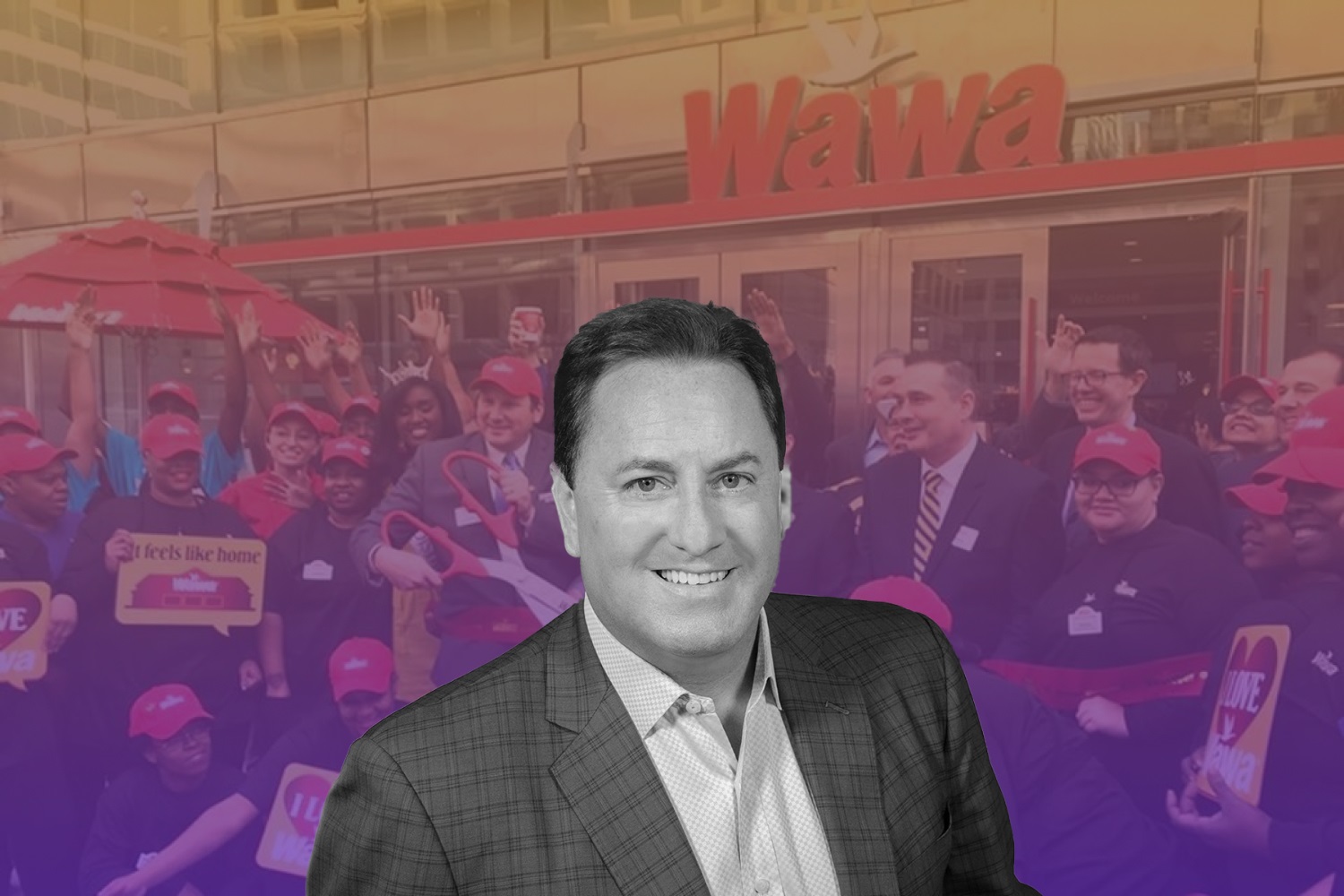Wawa’s Milestone Moments: From Dairy Farms to Urban Markets
Convenience stores indeed cater to the fast-paced lifestyles of consumers, providing a one-stop solution for various everyday needs. Their extended operating hours and accessibility make them particularly appealing, especially in emergencies or when customers require quick and convenient access to essential products.
Wawa, in particular, is recognized for its convenience store chain that originated in the Mid-Atlantic region of the United States.
Much like its counterparts, such as the well-known 7-Eleven, Wawa operates as a chain of convenience stores. However, what sets it apart is not only its more modest size but a plethora of distinctive features that make it a beloved choice for those in the know.
Currently, Wawa is on the cusp of a significant milestone — approaching the opening of its 1,000th location.
From Dairy to One-Stop Shop: The Evolutionary Journey of Wawa
Wawa’s journey began over 200 years ago, rooted in dairy farming in the early 1800s.
Its roots trace back to 1902 when Grahame’s grandfather, George Wood, established the Wawa dairy farm, a crucial supplier for the future store.
The lineage extends further to 1803 when George’s uncle, David C. Wood, initiated the first of the New Jersey iron foundries, eventually providing the funds to acquire the dairy.
In the early 1960s, facing a decline in the home-delivery business due to supermarkets, Grahame Wood explored the concept of convenience stores.
He conducted research, visiting a friend who owned such stores in Ohio, and developed a plan to establish three stores focused on selling Wawa’s milk and other perishable items.
Maria Thompson, an architectural historian and relative of Grahame Wood, said: “He was a man who could roll up his sleeves,”
She attributes Wawa’s management culture to Grahame’s experience as a paratrooper during World War II, emphasizing a team-oriented approach where everyone relies on each other, creating a sense of shared responsibility rather than individual accountability.
George Wood’s dairy plant thrived on delivering high-quality, unpasteurized milk to homes, employing marketing strategies to assure its cleanliness. The region’s Native American name, meaning Canada Goose, inspired the iconic goose logo.
Wawa took a significant leap into a new industry in 1902 when it inaugurated its first milk processing plant, Wawa Dairy.
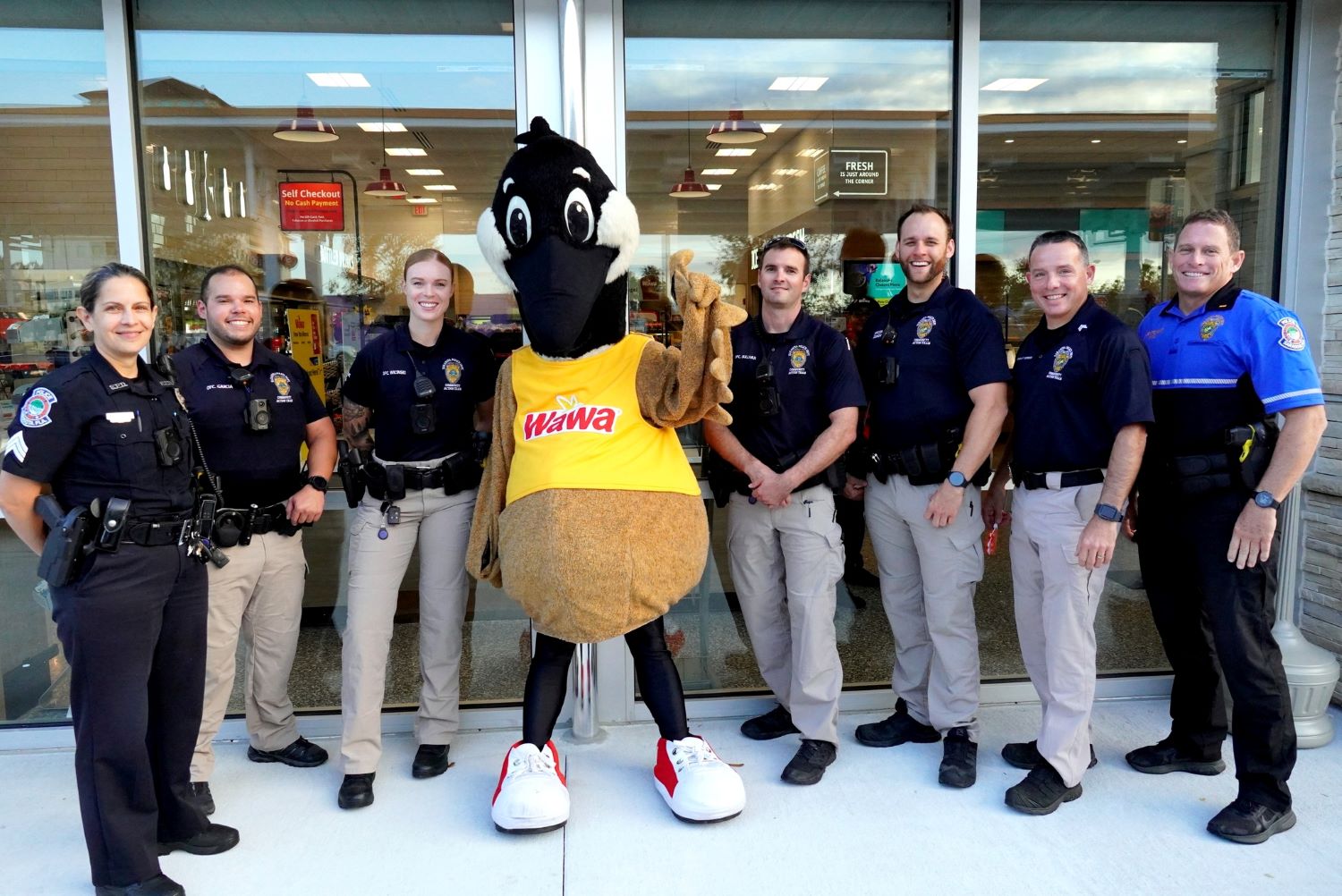
Wawa Dairy swiftly earned a distinguished reputation as a purveyor of high-quality dairy products. The company adopted a unique approach by delivering these products directly to homes across the Philadelphia area, emphasizing convenience and freshness for its customers.
By the 1940s, refrigerators became widespread, diminishing the need for home milk deliveries. Graham Wood Jr., George’s grandson, recognizing the changing landscape, opened the first Wawa store in the 1960s to sell their dairy products directly.
Initially specializing in milk, butter, and ice cream, Wawa’s success led to rapid expansion, with nearly 80 stores by the end of the 1960s.
In 1970, Grahame Wood enlisted the expertise of Richard D. Wood Jr.—Dick, his cousin’s son and a young lawyer experienced in mergers and acquisitions. Dick’s negative reaction to going public shaped Wawa’s trajectory, focusing on long-term decisions rather than short-term gains.
Grahame appointed Dick as his successor in 1977, and his tenure saw the expansion of Wawa’s product offerings and a successful foray into selling gas in 1993, marking the era of “big gas” and suburban-focused expansion.
During the 1990s, Wawa faced challenges, including a failed attempt to sell Taco Bell and Pizza Hut products.
Dick Wood, a strategic and shrewd leader, contributed to Wawa’s success through values like “never be satisfied” and a focus on culture.
His successor, Howard Stoeckel, led Wawa’s expansion to Florida in 2012. Gheysens, who became CEO in 2013, continued the urban pivot, opening a successful store in Center City Philadelphia in 85 days, signaling Wawa’s focus on urban markets and food-savvy residents.
Product Excellence: The Cornerstone of Wawa’s Customer-Centric Philosophy
Wawa’s triumphs find their foundation in a resolute commitment to customer-centricity. The core values and mission statement of the company orbit around providing exceptional service and creating delightful experiences for every customer.
The company goes beyond mere transactions; it seeks to understand the unique needs of its diverse customer base and aspires to exceed their expectations consistently.
Wawa’s iconic private label coffee, introduced in 1978, which has become a beloved staple for coffee enthusiasts. The meticulous attention to detail spans from the innovative “brew island” setup to the proprietary blend of beans, shrouded in secrecy as a closely guarded company recipe.
The red-logo company’s coffee success is reflected in staggering numbers, with an impressive annual sale of approximately 195 million cups.
A remarkable milestone was achieved in 2008 when Wawa celebrated the sale of its billionth cup of coffee, solidifying its position as one of the largest purveyors of brewed coffee in the United States.
The coffee offerings at Wawa go beyond the conventional, encompassing regular and decaffeinated brews, flavored coffees, lattes, and hand-pulled espressos.
What sets Wawa apart is not just the volume of coffee sold but the exclusive nature of their offerings — you won’t find Wawa’s distinctive coffee blends anywhere else.
Another significant milestone occurred in 1996, as former CEO Howard Stoeckel highlighted in an interview. “We decided to test gas,” he said. “And we opened our first store in Millsboro, Delaware…and ever since then, every store we build has gas.”
The ability of Wawa, operating primarily in five states, to remain competitive against national chains can be attributed to its willingness to experiment and innovate.
Stoeckel emphasized the importance of trying different things, acknowledging that the company has encountered both successes and failures.
In an interview with CEO Howard Stoeckel on NewsWorks Tonight, the focus was on Wawa’s business philosophy, its unwavering commitment to both customers and employees, and Stoeckel’s book titled “The Wawa Way: How a Funny Name and Six Core Values Revolutionized Convenience.”
“When we opened the first store back in 1964, basically Wawa was the alternative to the supermarket,” said Stoeckel. “We sold dairy, deli, produce, bread, and grocery items.”
However, the venture faced a setback in the following decade as low profits prompted a significant cutback in gasoline sales.
Undeterred by the challenges, Wawa executed a notable turnaround in the 2000s by re-embracing gasoline retail. With a renewed focus on providing a comprehensive convenience experience, every new Wawa location built during this era was equipped with a gas station.
In the gasoline market, Wawa Inc. has unveiled a series of expansive fuel-storage tanks at the Port of Wilmington. Partnering with Magellan Midstream Partners, Wawa is leasing 11 new tanks along with two older ones, signifying a major step in enhancing its fuel distribution capabilities in the region.
Magellan Midstream Partners, a key player in transporting refined products across 22 states, is providing Wawa with these storage facilities. Out of the 11 new tanks, ten are designated for gasoline storage, while three are allocated for ethanol. Together, they boast a storage capacity exceeding 1 million barrels of fuel.
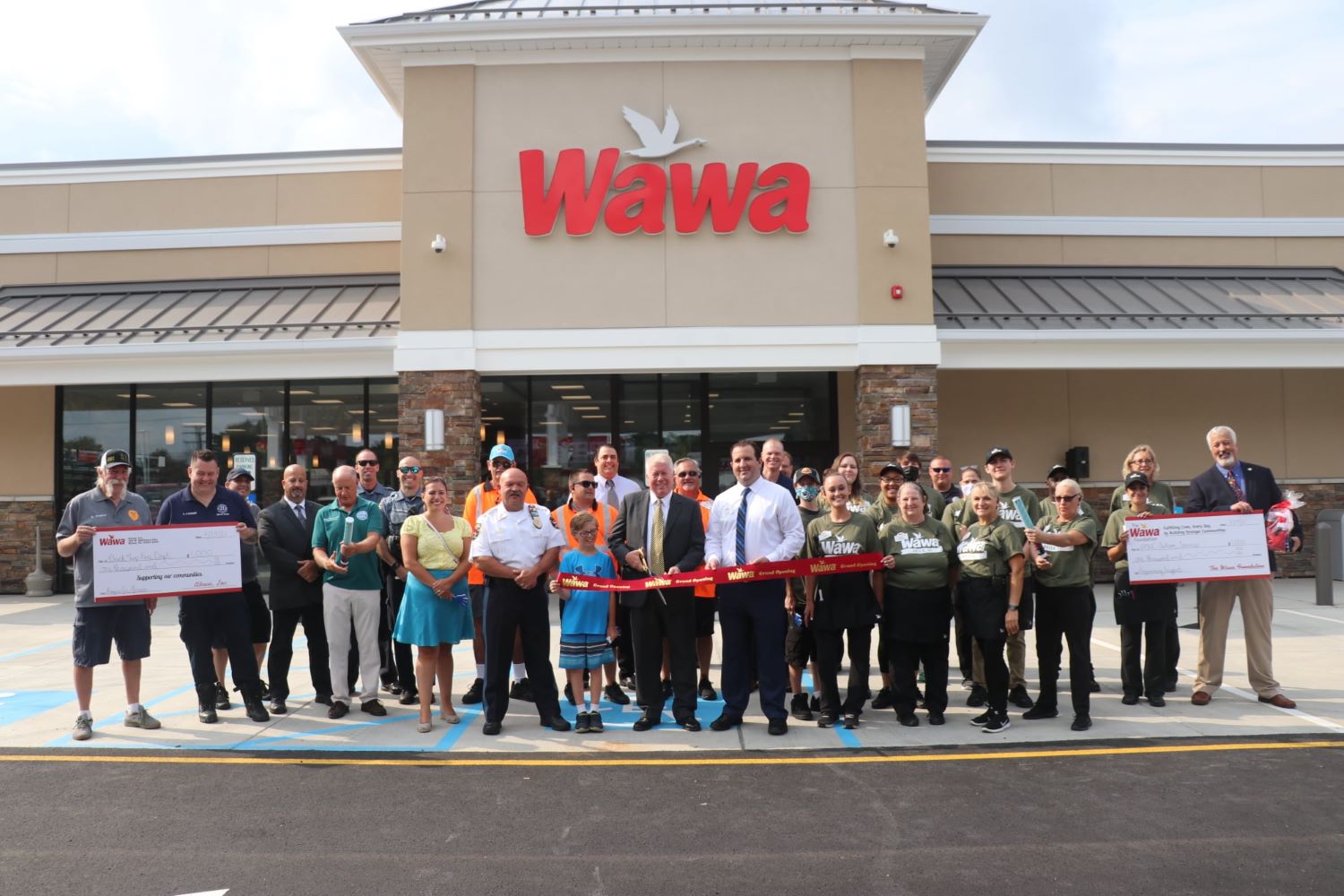
To ensure a steady supply of gasoline, Wawa has collaborated with Chevron, importing refined gasoline from the United Kingdom. The process involves blending the gasoline and ethanol on-site as trucks are loaded, resulting in the creation of E10 fuel. This strategic partnership serves as a cornerstone in Wawa’s efforts to meet the growing demand for fuel across its network.
Howard Stoeckel, President and CEO of Wawa, emphasized the significance of this move, revealing that around 60 stores will initially be supplied by the newly acquired tanks.
The decision to invest in this fuel-storage infrastructure marks a departure from Wawa’s previous supply sources, such as Sunoco and Valero refineries in Delaware, reflecting the company’s pursuit of a more stable and predictable supply chain.
Jim Bluebello, Vice President for Supply Chain at Wawa, highlighted the importance of controlling the supply chain for profitability.
While Wawa will continue to utilize sources other than Chevron, the newly established tanks are positioned as the central hub of their distribution network. Bluebello explained that Wawa has the flexibility to fill up to 20 percent of the tanks’ capacity from suppliers other than Chevron.
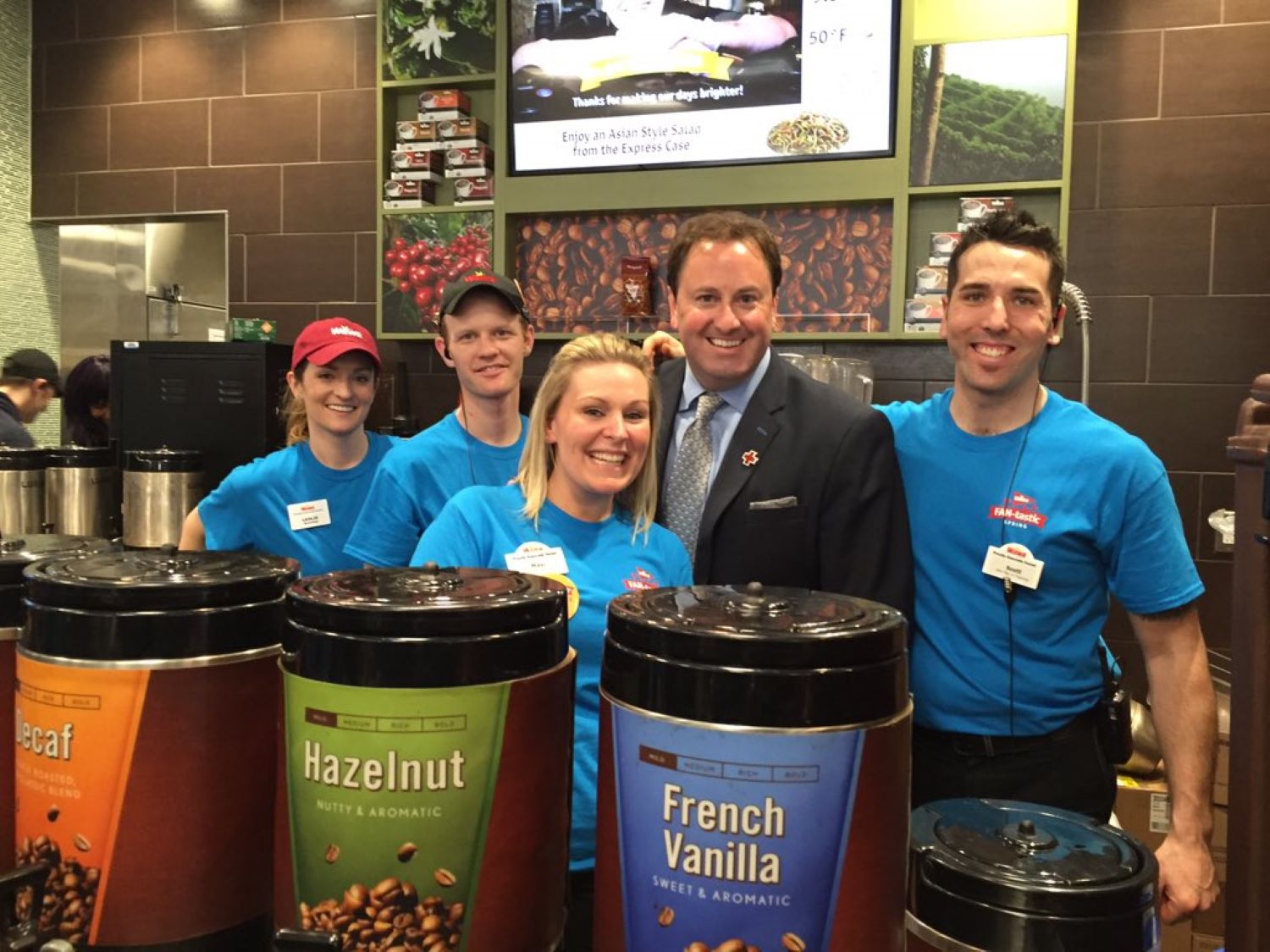
Acknowledging the ongoing debate over the use of corn for ethanol production, Bluebello noted the complexities of the issue, stating, “The debate still rages.”
Wawa also offers a delightful and customizable menu experience, especially with the focus on their Built-to-Order Hoagies and Sandwiches. The variety in sizes caters to different appetites, and the availability of both cold and hot hoagie options adds versatility.
The Touchscreen ordering process adds a modern and convenient touch for customers to personalize their orders easily.
This commitment to culinary excellence reached new heights when Wawa secured the prestigious position of the official Hoagie sponsor of the Philadelphia Eagles in 2015.
The year 2018 further solidified Wawa’s culinary prowess when it emerged as the nation’s preferred sandwich chain in a survey encompassing 11,000 participants.
Optimizing Speed and Efficiency: Commitment to Unparalleled Convenience
Wawa’s commitment to unparalleled convenience is deeply embedded in its operational philosophy, making it a standout in the retail industry.
Since 1972, the company has consistently kept most of its locations open 24 hours a day, seven days a week, showcasing an unwavering dedication to accessibility for its customers.
The store layout at Wawa reflects a meticulous approach to optimizing speed and efficiency. A key design strategy involves the strategic separation of various sections within the store to expedite customer service.
For instance, the separation of the sandwich area from the checkout counter ensures that customers can swiftly place and receive their orders, minimizing wait times.
Similarly, the deliberate segregation of the coffee station from the cream and sugar stations is aimed at reducing queues and enhancing the overall speed of service.
The leadership at Wawa has redefined the landscape of convenience stores by prioritizing a high-quality customer experience, setting itself apart from traditional establishments in the industry.
The company, with 645 stores across several states, has become synonymous with excellence in convenience retail. Unlike the conventional pull system where customers were drawn primarily by the necessity of gas or grab-and-go food, Wawa strategically shifted the paradigm.
The key differentiators for Wawa lie in its commitment to quality and customer satisfaction, aspects often overlooked in the traditional convenience store model.
This dedication has earned Wawa prestigious awards such as the “Best of Philly” for its coffee and deli, and top honors in Master Dairy’s Quality Product Awards.
By focusing on providing a superior experience, Wawa has not only met but exceeded customer expectations, creating significant value in an industry that historically undervalued these elements.
Wawa’s 24/7 service, made-to-order food and drinks, freshly brewed coffee, fuel services, and surcharge-free ATMs reflect a comprehensive approach to meeting diverse customer needs.
The company’s success is not solely reliant on the necessity of location or competitive gas prices but rather on the exceptional convenience store experience it offers.
Wawa’s innovative approach to incorporating technology has set it apart in an industry traditionally perceived as tech-less. The company’s adoption of cutting-edge solutions has not only enhanced operational efficiency but also elevated the overall customer experience.
The company has invested in robust network infrastructure to collect and analyze data, tracking key performance indicators (KPIs) across the organization. This data-driven approach enables Wawa to gain valuable insights into various aspects of its operations, from inventory management to customer preferences.
Wawa’s Employee Stock Ownership Plan (ESOP): Fostering Culture and Rewarding Loyalty
Wawa, however, has chosen to stay a private company, maintaining ownership of all its stores.
Forbes ranks Wawa as the country’s 25th largest private company and the largest one in Pennsylvania.
While this private status could provide ample opportunities for expansion beyond their current regional focus, such a move might necessitate changes in the company’s structure and operations, potentially compromising some degree of control.
CEO Christopher Gheysens emphasizes the significance of the Employee Stock Ownership Plan (ESOP) in Wawa’s culture, considering it a central element that not only rewards loyal workers but also instills pride in their ownership of the company.
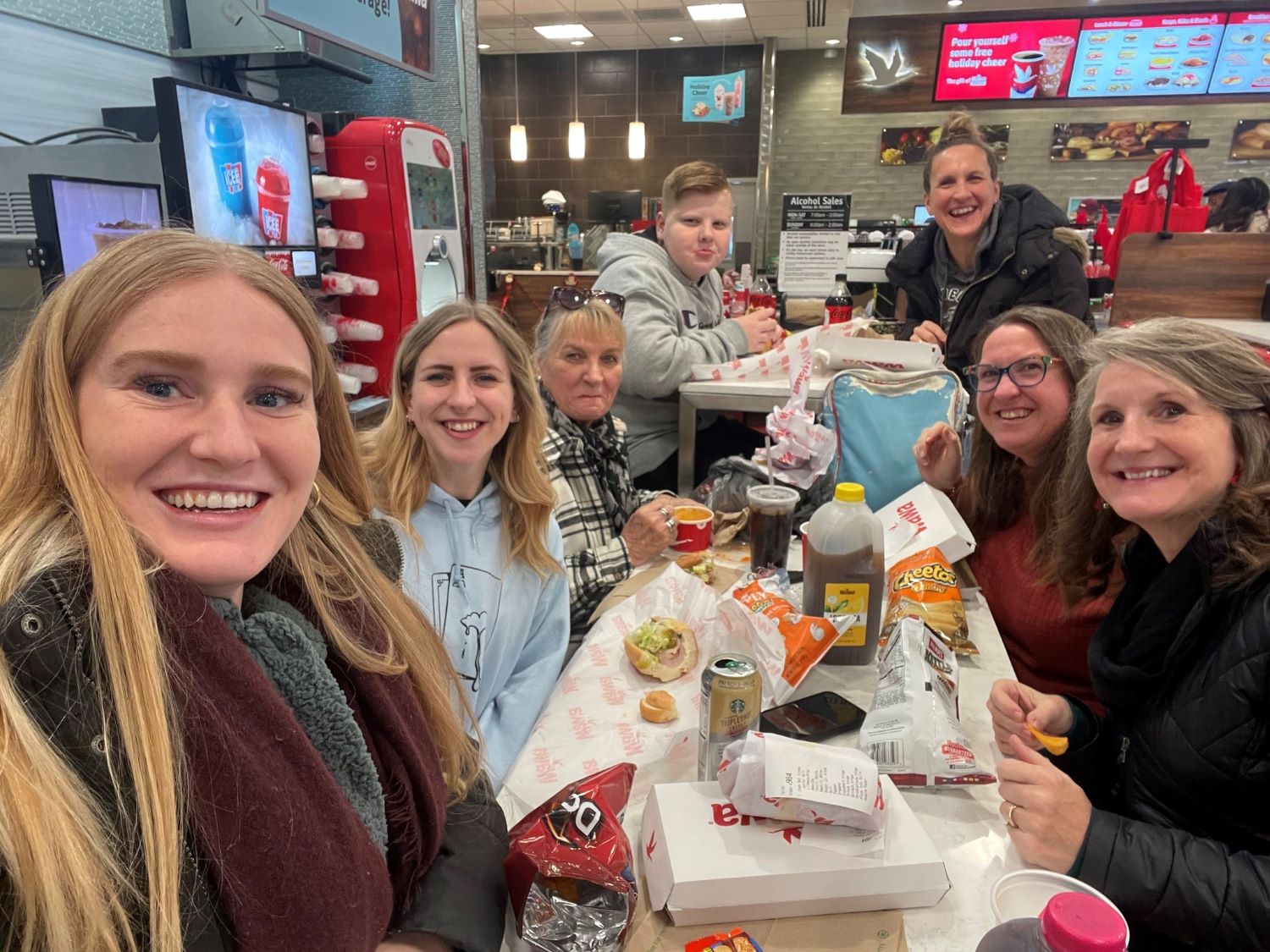
As of the end of 2018, the Wawa ESOP held stock valued at more than $2 billion, showcasing the substantial financial stake that employees collectively have in the company. Approximately 20,000 Wawa employees have enrolled in the ESOP, illustrating its widespread participation.
While some senior and long-serving employees have accumulated impressive portfolios of $1 million or more worth of shares, the ESOP benefits extend to hourly workers as well.
These employees, who may have only recently begun accumulating shares, are rewarded based on formulas considering hours worked, length of service, and the type of service they provide to the company.
It’s worth noting that, despite the overall success of the ESOP, not every employee qualifies for share awards. Thousands of workers leave the company every year without meeting the criteria for receiving share awards.
Wawa also found itself entangled in a legal and ethical controversy involving the forced sale of ex-employees’ stock.
The issue stemmed from Wawa’s legal conversion in 2014 from a C-corporation to an S-corporation, aiming to become a closely held entity with similarities to a small or family business.
This legal shift had several implications, notably ending Wawa’s federal income tax obligations, enhancing profits, dividends, and future value. It also marked a transition from potential employee ownership to more concentrated control within the Wood family.
The conversion was prompted by the “Private Company Flexibility and Growth Act” of 2012, which allowed private companies to avoid extensive financial reporting.
While supported by Wawa and local Congress members, the conversion stirred controversy as it seemingly veered away from the initially proposed employee ownership model.
In 2004, faced with the prospect of a public stock offering that could dilute Wood family control, Wawa turned to its veteran employees.
They were asked to exchange their savings in a profit-sharing plan for ESOP shares, providing Wawa with the necessary cash to buy out external shareholders and maintain family control.
Fast forward to 2015, and ex-employees were informed that they must sell their shares, contrary to assurances made during the earlier transaction. This move prompted legal action, with allegations of misinformation and violation of the federal Employee Retirement Income Security Act.
A settlement in 2018 saw Wawa agreeing to compensate ex-employees, though the company admitted no wrongdoing.
However, a subsequent lawsuit, Cunningham vs. Wawa Retirement Plan, suggests that the Wood family aimed to regain majority control by reclaiming departed employees’ shares.
Bold Expansion Strategy: Wawa’s Aggressive Plans for New Territories
Moreover, Wawa is initiating an ambitious expansion strategy, aiming to establish new stores in the eastern region of North Carolina by 2024.
“We can’t wait to open our doors to the community next year,” Kim Dowgielewicz, director of store operations, wrote in a news release. “As we get closer to our grand openings in 2024, we will be sharing even more details on our growth in North Carolina.”
The locations for these upcoming stores include North Croatan Highway and 4th Street in Kill Devil Hills, Halstead Boulevard and U.S. Highway 17 in Elizabeth City, Raleigh Road Parkway and Hayes Place in Wilson, Ward Boulevard and Nash Street in Wilson, Benvenue Road and Jeffreys Road in Rocky Mount, Wayne Memorial Drive and Hospital Road in Goldsboro, U.S. Highway 70 and N.C. Highway 581 in Goldsboro, and Stantonsburg Road and Moye Boulevard in Greenville.
The strategic initiative, announced by Marianne Wilson, Editor-in-Chief, on September 28, 2023, outlines a meticulous approach to geographical expansion, with 60 stores earmarked for both Ohio and Indiana, and an additional 40 in Kentucky over the next decade.
The intricacy of site acquisition is evident in Wawa’s securing of over 16 sites in each state, spanning multiple counties, demonstrating a strategic footprint that goes beyond mere geographical expansion. These sites, currently navigating the regulatory processes, symbolize the foundational steps toward Wawa’s envisioned regional dominance.
With an estimated investment of $7 million per store, Wawa’s commitment to quality infrastructure is clear.
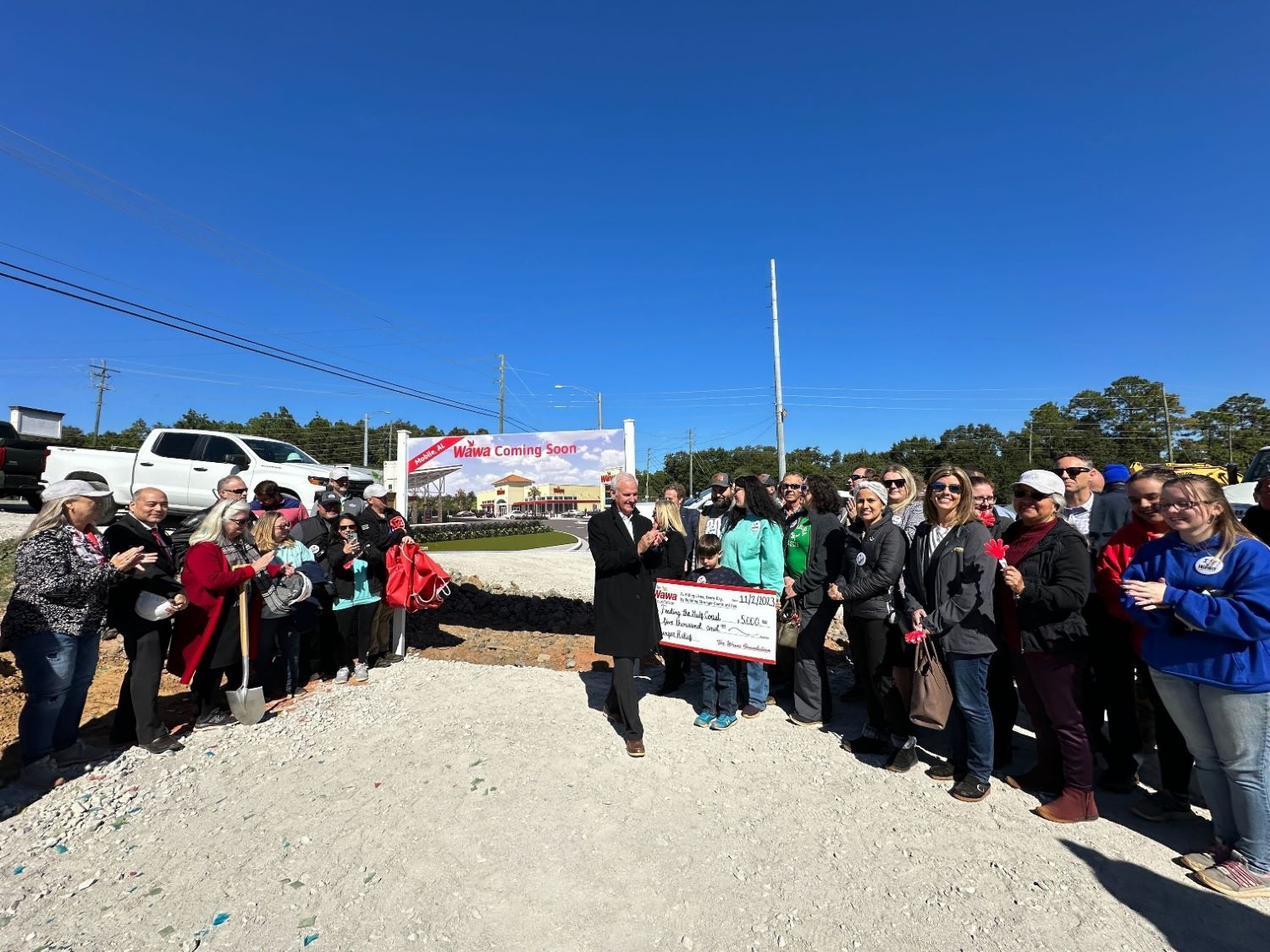
The engagement of an average of 140 contractors and local partners during the construction phase, coupled with an employment projection of approximately 35 workers per store post-opening, underscores the magnitude of Wawa’s economic impact on the communities it plans to enter.
Notably, the involvement of Wawa associates, who collectively own 39% of the company through an Employee Stock Ownership Plan, adds a unique dimension to the narrative, aligning employee interests with corporate success.
The commitment to community engagement is exemplified through Community Partnership Day events held across multiple cities, where Wawa not only introduces itself to new locales but also makes substantial contributions to regional community partners.
“We were thrilled to share our ‘flight plan’ for North Carolina and reveal, for the very first time, our exciting expansion plans, renderings and more with our newest soon-to-be neighbors!” said Kim Dowgielewicz, Director of Store Operations for Wawa.
“Our Community Partnership events also gave us the opportunity to meet new community members and talk a little bit about our history and what makes Wawa such an ideal fit for communities in this region. We can’t wait to open our doors to the community next year! As we get closer to our grand openings in 2024, we will be sharing even more details on our growth in North Carolina all while connecting with more customers, communities, partners and nonprofit organizations.”, Kim Dowgielewicz added.

